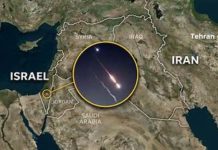By Qamar Bashir
Pakistan has announced its decision to nominate former U.S. President Donald Trump for the 2026 Nobel Peace Prize, citing his critical role in brokering a ceasefire between India and Pakistan during their recent four-day conflict. According to Islamabad, Trump’s diplomatic intervention prevented what could have been a devastating war between two nuclear-armed nations, whose combined population nears 1.7 billion people. The risk of escalation was not merely regional—it threatened global catastrophe. A full-blown nuclear exchange between India and Pakistan would have killed millions instantly, left countless more suffering from radiation poisoning, and potentially polluted vast areas of the planet with radioactive fallout.
In the eyes of Pakistani leadership, the ceasefire was not a result of bilateral understanding alone, but rather the outcome of behind-the-scenes pressure from Washington, led by Trump himself. His influence, they argue, tipped the strategic balance in Pakistan’s favor. The fact that India has not made a similar nomination, nor endorsed Pakistan’s proposal, suggests New Delhi may have been compelled by external pressure to agree to de-escalation—an arm-twisting it now hesitates to acknowledge. Pakistan, by contrast, sees Trump’s role as decisive, crediting him for giving diplomacy a chance and stabilizing one of the world’s most volatile flashpoints.
For Trump, this marks yet another moment where he seeks to define himself as a peacemaker. Since returning to office, he has claimed involvement in a range of peace efforts, including attempting to defuse tensions between Russia and Ukraine, proposing controversial solutions to the Israeli-Palestinian conflict, and more recently, trying to mediate between Israel and Iran as hostilities in the Middle East escalate. In each of these cases, Trump has framed himself as a man of peace rather than war, a statesman who prefers deals over destruction.
However, the Nobel Peace Prize is governed by very specific criteria outlined in Alfred Nobel’s will. The prize is intended for those who have, in the preceding year, contributed most to fostering fraternity between nations, advancing disarmament or the abolition of standing armies, or organizing peace congresses. While Pakistan’s government is qualified to make the nomination, the question remains whether Trump’s actions align sufficiently with these core requirements.
Trump’s role in halting the India-Pakistan conflict may well qualify under the category of fostering fraternity between nations, at least in the narrow sense of preventing immediate escalation. However, critics argue that his interventions tend to be tactical rather than structural. The ceasefire, while significant, did not involve formal peace talks, demilitarization, or the establishment of long-term conflict-resolution mechanisms. It was a pause in hostilities, not a transformation of the underlying tensions. Similarly, his other diplomatic efforts have often lacked follow-through, institutions, or treaties that would make peace durable.
Still, Trump’s posture as a peacemaker has found fresh ground in the Middle East. As the war between Israel and Iran escalated in June 2025, Trump initiated a series of back-channel efforts to contain the conflict. He publicly called for calm, pressured both sides to explore negotiation, and sought Turkish mediation to open discreet dialogue with Iranian officials. Though Tehran initially refused to participate unless Israel halted its bombing campaign, Trump remained hopeful that diplomacy could still win the day. At the G7 summit, he reiterated his plea for restraint, urging both parties to “make a deal” and avoid dragging the region into a full-scale war.
Unlike many past U.S. presidents, Trump has taken a nuanced stance on NATO, pushing European allies to shoulder more financial responsibility. His reduced emphasis on U.S. military interventionism is consistent with his larger strategy of avoiding entanglements while leveraging diplomatic pressure. Whether this is pragmatism or isolationism is open to debate, but Pakistan clearly sees in Trump a leader who intervenes only when strategic interests and peace align.
Yet Trump’s foreign policy record is fraught with contradictions. While positioning himself as a man of peace in one region, he has actively emboldened militarism and expansionism in others. His unwavering support for Israel, despite the humanitarian catastrophe in Gaza and the West Bank, has been widely condemned.
His administration’s backing of Israeli military operations—framed by many as acts of genocide against Palestinians—has undermined his peace credentials. Furthermore, his support for Israel’s continued assault on Iran and refusal to condemn aggressive preemptive strikes has placed the United States squarely on one side of an increasingly dangerous regional war.
Beyond the Middle East, Trump’s assertions to annex Canada as the 51st state, his plan to rebrand the Gulf of Mexico under American identity, his proposal to take over Greenland from Denmark, and his ambitions to militarize and control the Panama Canal and adjacent lake regions signal an aggressive geopolitical posture. These positions paint him not as a global peacemaker but as an opportunistic expansionist, eager to rewrite borders and extend American dominance through threats, deals, or force.
Despite these criticisms, Trump’s ability to stall a potential war between India and Pakistan gives him a strong talking point in the context of Nobel nominations. It adds weight to his self-characterization as a statesman who, even if unconventional, gets results. Whether the Nobel Committee shares that view is far from certain. Historically, the committee has favored leaders whose efforts culminate in formal agreements, institutional reforms, or significant steps toward disarmament—criteria that Trump has yet to meet fully.
There is, of course, a deeply political dimension to Pakistan’s nomination. By recognizing Trump in this way, Islamabad gains soft power leverage and potentially earns goodwill from one of the most powerful and polarizing leaders on the global stage. In contrast, India—smarting from what many see as a military setback—has remained diplomatically muted. Its reluctance to echo Pakistan’s praise of Trump may be born out of resentment or embarrassment. By moving first, Pakistan has repositioned itself as a diplomatic ally to the United States under Trump’s leadership, while casting India in a defensive, unresponsive role.
In conclusion, Pakistan’s nomination of Donald Trump for the Nobel Peace Prize is both a diplomatic strategy and a symbolic gesture. It serves to highlight Trump’s influence in regional stability and underscores Pakistan’s gratitude for averting a disastrous conflict. While the nomination is procedurally sound, whether it gains traction with the Nobel Committee depends on how they interpret Trump’s peace initiatives. If short-term conflict prevention is deemed sufficient, Trump could emerge as a serious contender. If the bar remains high—demanding enduring peace through institutions, disarmament, and treaties—then his efforts may fall short. Regardless of the outcome, the move places Pakistan on Trump’s radar and subtly shifts the narrative of South Asia’s security calculus in Islamabad’s favor.
By Qamar Bashir
Press Secretary to the President (Rtd)
Former Press Minister, Embassy of Pakistan to France
Former MD, SRBC | Macomb, Michigan, USA

















